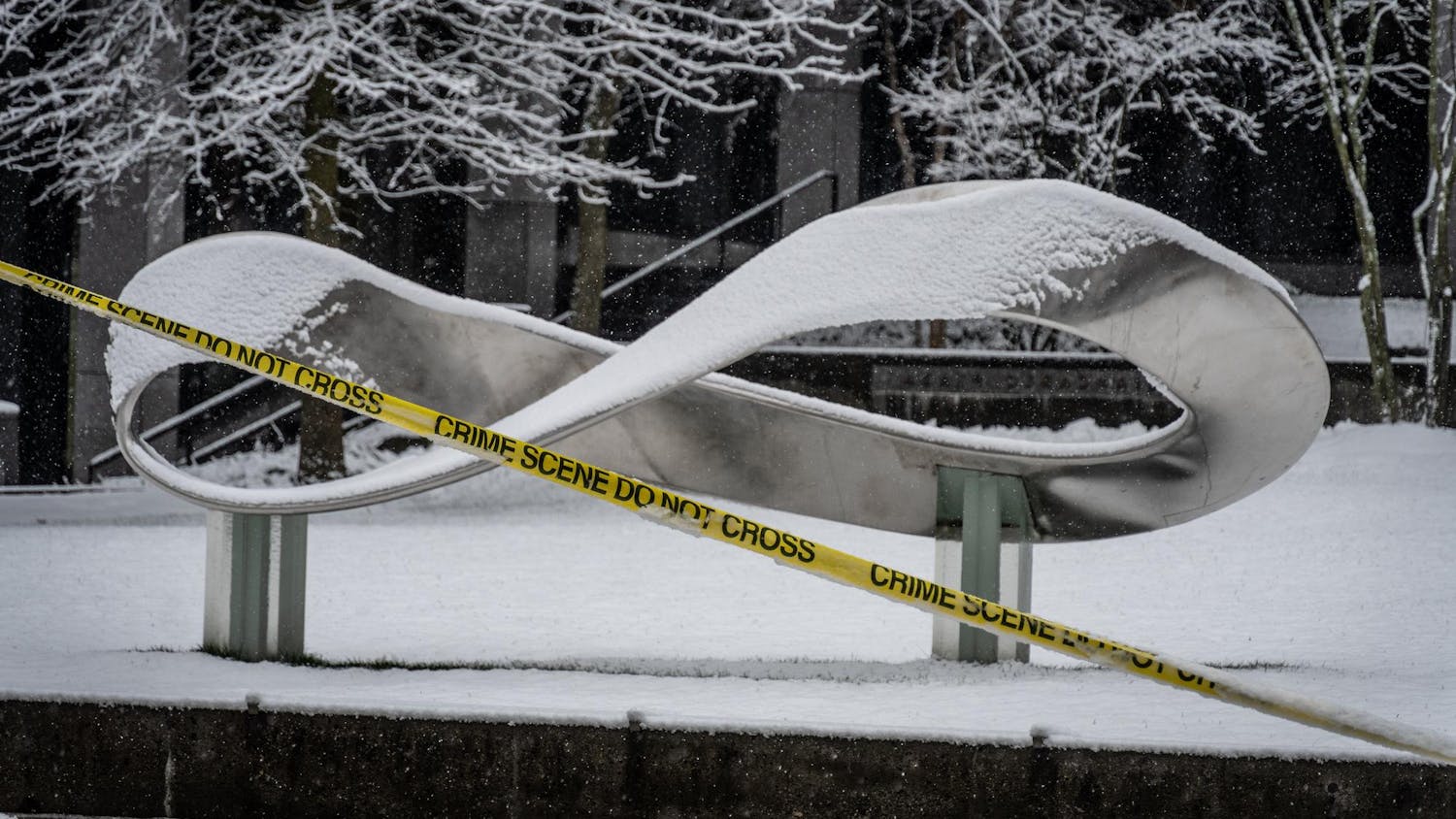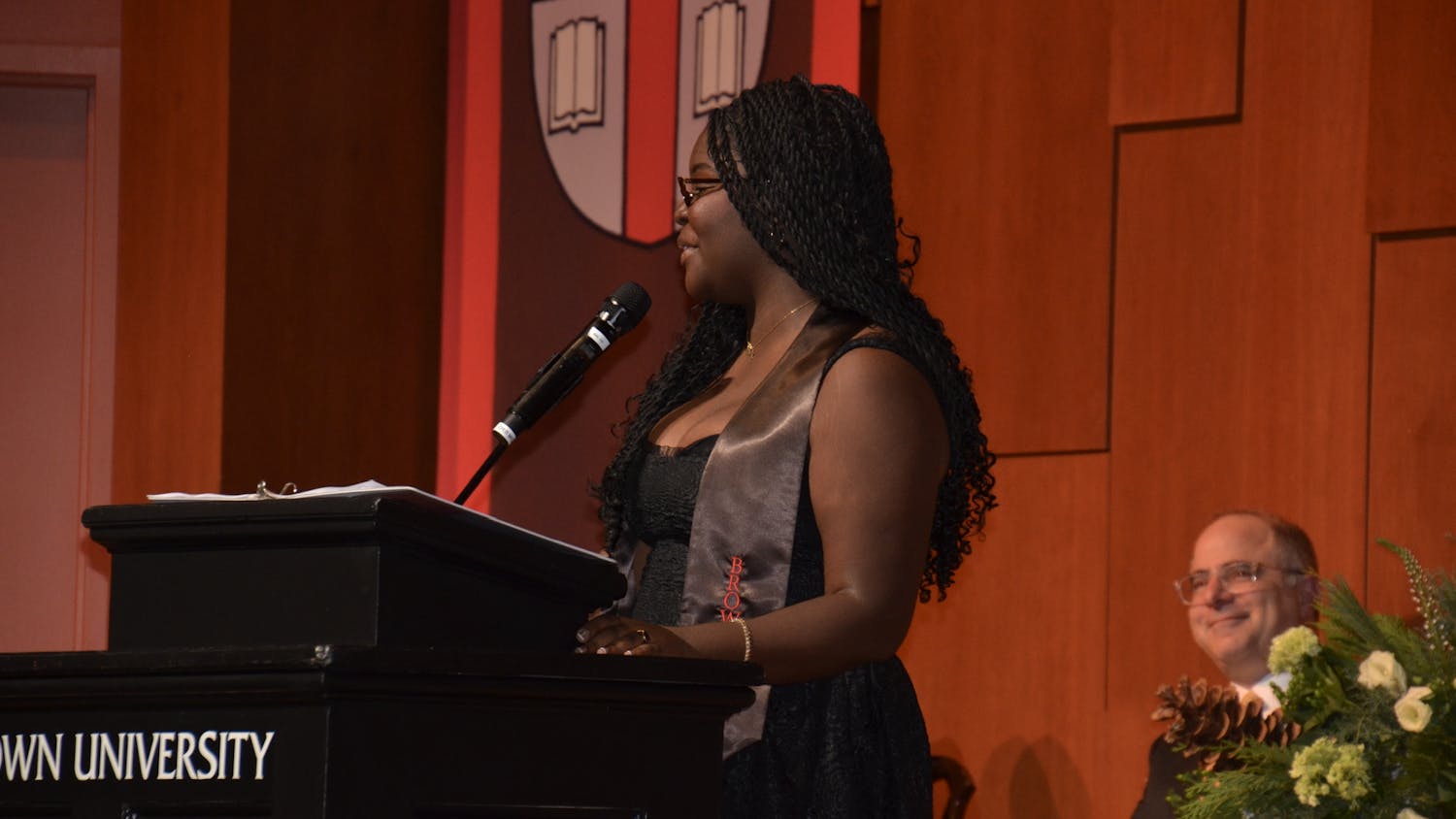While many Brown students enjoyed a stereotypical sun-soaked spring break, 10 undergraduate and graduate students spent a week centered on the theme of “comparative modernism” in Berlin hosted by the Cogut Center for the Humanities.
Led by Michael Steinberg, director of the Cogut Center and professor of history and music, the group attended rehearsals at the Berlin State Opera, sat in on seminars at Bard College in Berlin and received a tour of the Barenboim-Said Academy, a music school that grounds its education in politics, world affairs and humanities for students from the Middle East.
The goal of the program was to expose students interested in music, the humanities and Berlin to the intersections of these subjects that have shaped the rapidly changing city, Steinberg said.
The term “comparative modernism” refers to how the modern world is understood through arts and the humanities, Steinberg said. In accordance with this theme, the group was encouraged to view Berlin as a place for new developments in these disciplines, he added.
“The argument is to think of an international program that would connect Brown’s campus to Berlin and understand Berlin as a world city that is the only truly new city in the West,” Steinberg said.
Students on the trip bore witness to comparative modernism in two clear contexts: France and Germany in the 19th century, and Europe and the Middle East today. Program participants attended rehearsals of Wagner’s opera “Tannhauser” and studied the opera in the context of Baudelaire’s essays, examples of the “cutting edge” competition between France and Germany in the 1860s, Steinberg said. .
The excursion to rehearsals of “Tannhauser” was “a highlight which shed light on many crucial questions pertaining to Wagner’s music, its aesthetic and political impact, to the issue of the role of art at the turn of the 19th century,” wrote Laura Scurriatti, professor of comparative literature at Bard College, in an email to The Herald.
“The idea was to understand Berlin as a place of East-West encounter,” Steinberg said. This encounter emerged in the remnants of the city-dividing Berlin Wall and in Berlin’s exceptionally large Turkish population, he said.
Undergrads who participated in the program expressed satisfaction with their experiences.
“Apart from being treated to great food and getting to schmooze with professors, the coolest part was exploring Berlin,” said Jonny Abrams ’15, a program participant. “They trusted in our professionalism.”
David Kaufman ’16 said the program did a good job of exposing participants to the sights of Berlin.
“Berlin has the same wealth of culture as a London or a New York even though it’s very up and coming,” he said. “As a 20-year-old passing visitor walking around a young city, you feel just a part of everything that’s going on around you, as if you’ve always lived there.”
The program was advertised via the Cogut Center website and through encouragement from faculty members across many departments.
“We tried to get the word out as broadly as possible,” Steinberg said.
Steinberg said the application process was highly selective, though he declined to specify the number of applicants or acceptance rate.
“We got a wonderful group of students and also a very diverse one, which I think is important,” Steinberg said.
Though the Cogut Center’s Brown-in-Berlin program is only three years old, Bard College in Berlin, one of the main partners, is a more established program. The partnership between the two institutions was mutually productive and beneficial, Scurriatti wrote.
“We hope that this brief but intense encounter might have alerted students to different learning and teaching methodologies and approaches, and sparked an interest for the respective areas of study and courses,” Scurriatti wrote.
This marked the third “curricular pilot” of the Brown-in-Berlin trip, according to the program’s website. If the program garners positive feedback, it could be expanded to a study abroad opportunity during the semester instead of over spring break, Steinberg said.
“It was a lot of work,” he added. “It was not spring break in Cancun.”
ADVERTISEMENT




